This isn’t my first Final Fantasy game by a long shot. But, it’s probably the first one I sat down and completed without getting distracted by any other game since… of the mainline games… Final Fantasy VIII. It’s been a long time since I gave a Final Fantasy game complete control over my free time. Now I’m at the other end of it, I’ve had a couple days to think it over.
I’ve read that the FF16 developers were urged to read George R. R. Martin’s “Game of Thrones” series before they worked on the game, but the book I was thinking of the most, while playing the game, was Stephen R. Donaldson’s novella, “Daughter of Regals”. In that story, when you sit on the king’s throne, you manifest as a mythical beast, or you die. There are mysterious beasts roaming the realm, and many people claiming to be the true king claiming they are responsible. The crown princess, however, has shown none of her family’s heritage… but she has a secret.
In FF16, you play as Clive Rosfield, who did not gain his family’s hereditary power to be a Dominant and transform into the Eikon of Fire, Phoenix, but instead became only a Bearer, only able to command a small amount of power that inevitably kills the wielder. His younger brother, Joshua, becomes the Dominant of Fire and Clive is sworn as his Shield. This goes awry on the eve of a major battle when Joshua transforms into Phoenix, loses control of his powers, and is then suddenly confronted by an impossible second Eikon of Power, Ifrit, who kills him after a brutal battle. The Dominant of Ifrit is revealed to be Clive himself.
Time skips forward several years. Clive is now a member of a Bearer assassin team working behind the lines for the imperial forces to kill other nation’s Dominants. Shiva and Titan have just battled and Clive’s squad is headed to take out Shiva’s Dominant — who turns out to be Jill, a foster child raised alongside Clive and Joshua when they were young.
This is where the prologue ends — the part of the game in the demo, so I have spoiled nothing here.
By the time I finished the demo, I really wasn’t sure I wanted to play the game. The plot seemed standard, the cutscenes overly long, and the time between battles was so long that I’d already forgotten a lot of the combos before the next battle. Plus the fight as an Eikon (you play Phoenix instead of Ifrit for the only time in the game) was so very different, QuickTime Events instead of combos separated by absolutely cinematic but ultimately linear cutscenes just really made it seem like a game that would be as appreciated to a potential player by just watching all the cutscenes on YouTube.
Nonetheless, I promised myself that, good or bad, I would play all the way through FF16 before I went back to Diablo IV or any of the many other games on my backlog.
And you know what? I’m glad I did.
Everything I wrote above is correct throughout the entire game. There are lots of movies to watch. The game is absolutely linear. The Eikon fights are always cinematic but ultimately you’re doing more watching than fighting. The plot is pretty much what you would expect from an RPG — you collect the powers of the various Eikons and either defeat or befriend them (or both) and collect their power, at which time you confront the big bad and save the world. And nobody who has played a recent FF game should be surprised what happens after that, either.
Yet with all that said — I was still drawn in. There’s a lot to like. As Clive picks up Eikons, he opens up Eikon-specific powers that can be combined and merged to make truly devastating combos. The beginning of the game gave me little options, but by the end, I was pitying any normal mobs I came across, only really getting a chance to stretch when facing a miniboss or a Notorious Monster.
The dying world of Venisthea drew me in, too. The absolutely gorgeous cities, crowned by the towering Mothercrystals that give humanity their magic while simultaneously killing the world. (Subtle metaphors are not really in the FF wheelhouse, and never have been), The struggle of the people, especially the enslaved Bearers. The deep history and lore. The side quests that fill in so much of the world’s story.
Although much of the game is passive, the battles where Clive controls the action are anything but. They are filled with combos and bringing a vast array of powers to bear at any given moment. This “Devil May Cry”-inspired combat is a huge departure from most of the Final Fantasy games, even more so than with FF15’s active combat.
Square Enix won’t let this get in the way of every player enjoying the Venisthea’s last days. Players can choose “Story Mode” or “Action Mode” right at the start, and change that decision at any time. (An “Arcade Mode” for replaying fights for a better score, and a “Final Fantasy Mode” for hardcore difficulty runs, open up at certain points).
Additionally, every player starts with some accessories they can wear that can take some of the tedium out of the game’s combat. Various rings execute combos by just pressing a single button, or give you extra time to dodge incoming attacks, or just automatically dodge for you, or drink healing potions as needed, or give commands to your wolf companion so that you don’t have to, and so on. Equipping these does block you from equipping other useful items (extra gil, experience, powering up Eikon abilities, etc).
This game really wants you to know that it’s meant for adults. There’s sex. There’s slavery. There’s swearing. There’s deaths. Clive kills his brother in the prologue (slight spoiler: his brother is a Phoenix).
I’ve read critiques of the game for its treatment of its few women. Jill, who sets aside her agency to become Clive’s emotional support girlfriend. Benedikta, who only seems to be happy when dripping off the arm of a powerful Dominant, even though she herself is the Dominant of Wind. Anabella, Clive’s scheming mother, who’d twirl a moustache if she had one. And who can forget Medicine Girl’s brave sacrifice?
But the story of these women is not the story FF16 is telling. Like FF15 before it, FF16 is really a tale of brotherhood. Clive and father figure and mentor, Cid. Clive and actual brother Joshua. Clive and best friend Gav. Clive and rival Barnabus as a sort of negative example. It’s Clive’s bonds with the people around him that turn him from a wounded man who feels suicide to be the only option for what he has done in the past and what he might end up doing in the future, to someone who could save the world.
Sure, I would love to have the ability to play Jill’s side of the story. Her perspective would be illuminating, and I would think it would be the perfect opportunity for an expansion or DLC. The bits and pieces we do learn of her life before meeting up again with Clive — there’s a story there I want to know.
The game we have is Clive’s story. And I was there for it, every outsized overdramatic half hour long Eikon battle, every quest that told me a little more of the story of the world, and the sacrifice and redemption of not only Clive, but so many more people, looking for hope in a doomed world.
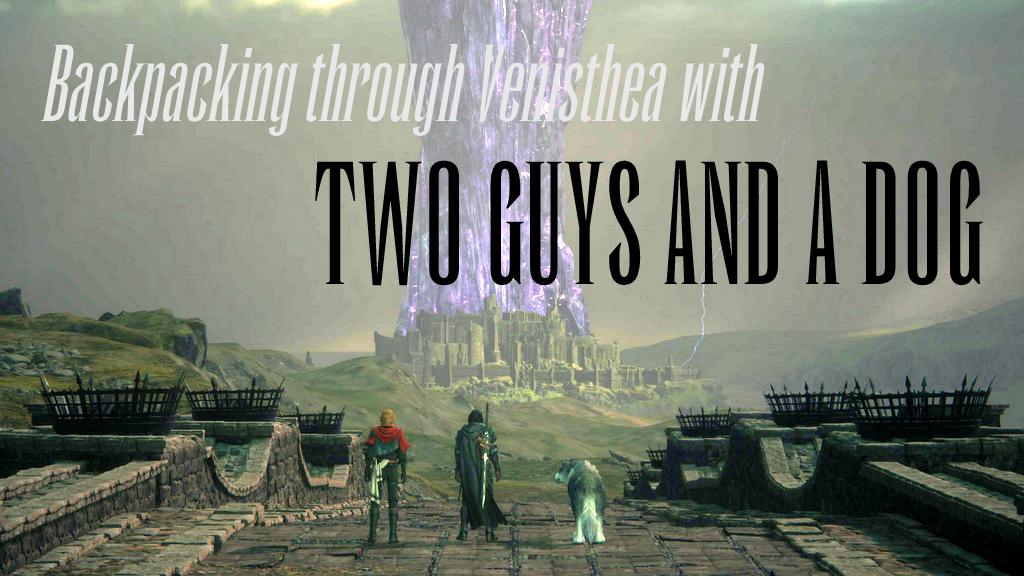
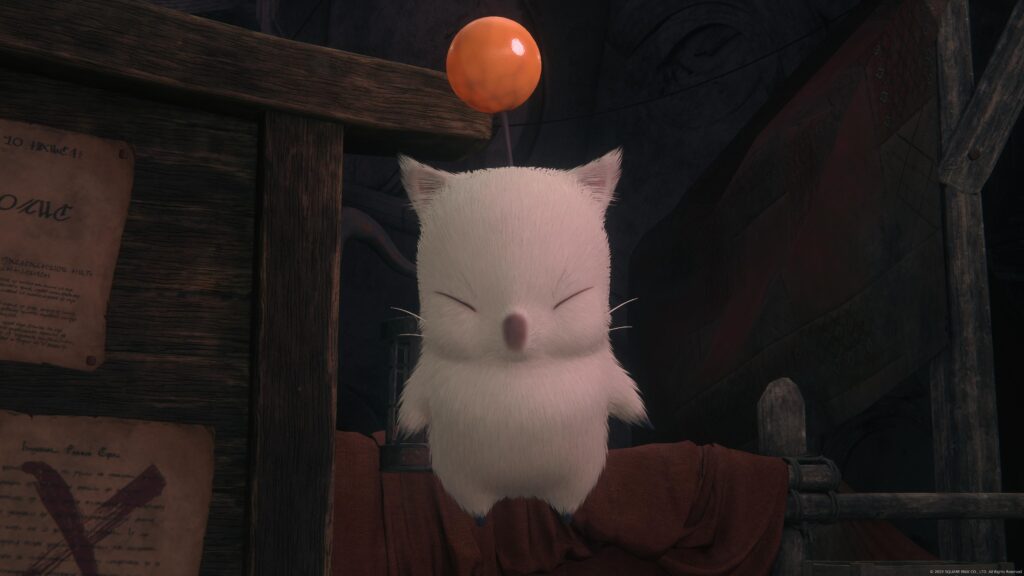
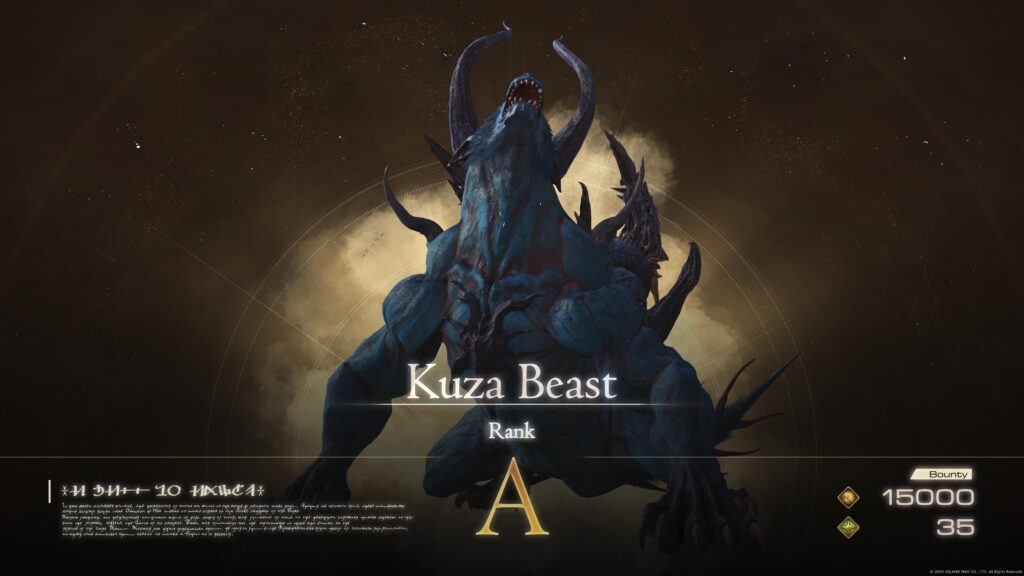
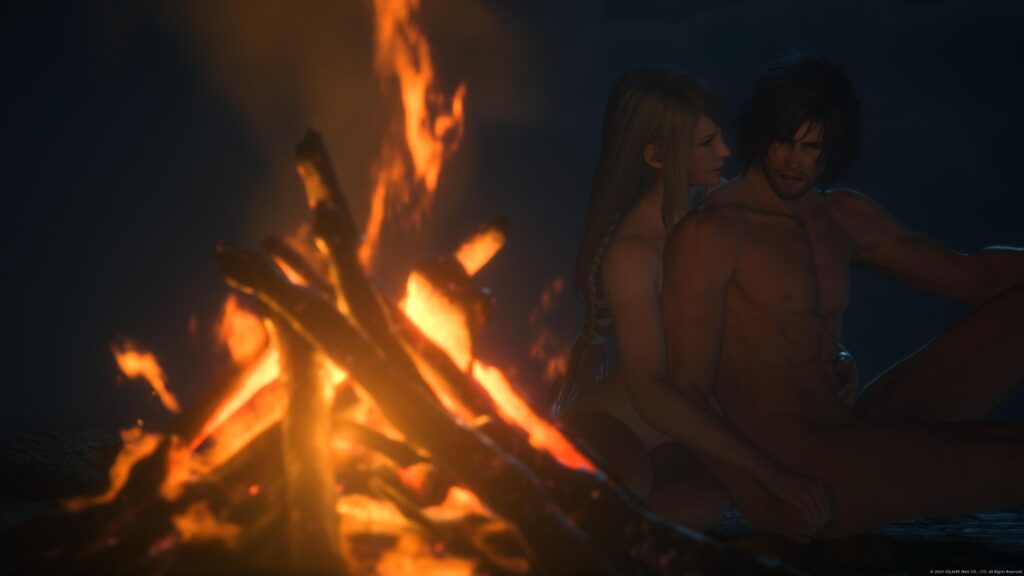
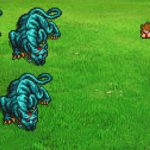
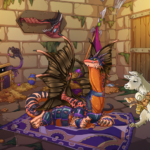
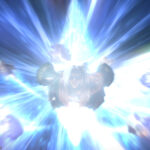
I’m not done with FFXVI yet, purely by play time, I would estimate I’m halfway or just about halfway.
From the non-spoiler reviews I’ve seen or read so far — I can definitely see both sides of the argument. FFXVI has been by and large a positive experience for me. That there isn’t (as I understand, at least) much to chase to reach the peak of power either in late or even post-game is a shame though.
While I did *not* enjoy hunting all of the ultimate weapons in all of the previous entries (*shakes fist at the bird/balloon racing for Tidus’ in FFX*), I very much appreciated their existence. I also appreciated the need, sometimes, to really tailor your gearing to the situation and what you were up against.
FFXVI doesn’t really have any of that. It could, story and setting trappings aside, have been released as something other than a mainline numbered FF entry and done incredibly well, I think.
While I still have a fair ways to go with this one still; I’m already thinking about what I’d want to see different and/or put back for FFXVII, and for me, I think the answer to that largely comes down to having more of a full party again and the build options this entails.
The action combat I could take or leave. I wouldn’t object to going to something more like the ATB or turn-based systems, but I think many would. Either way on this wouldn’t be a deal breaker for me, I think.